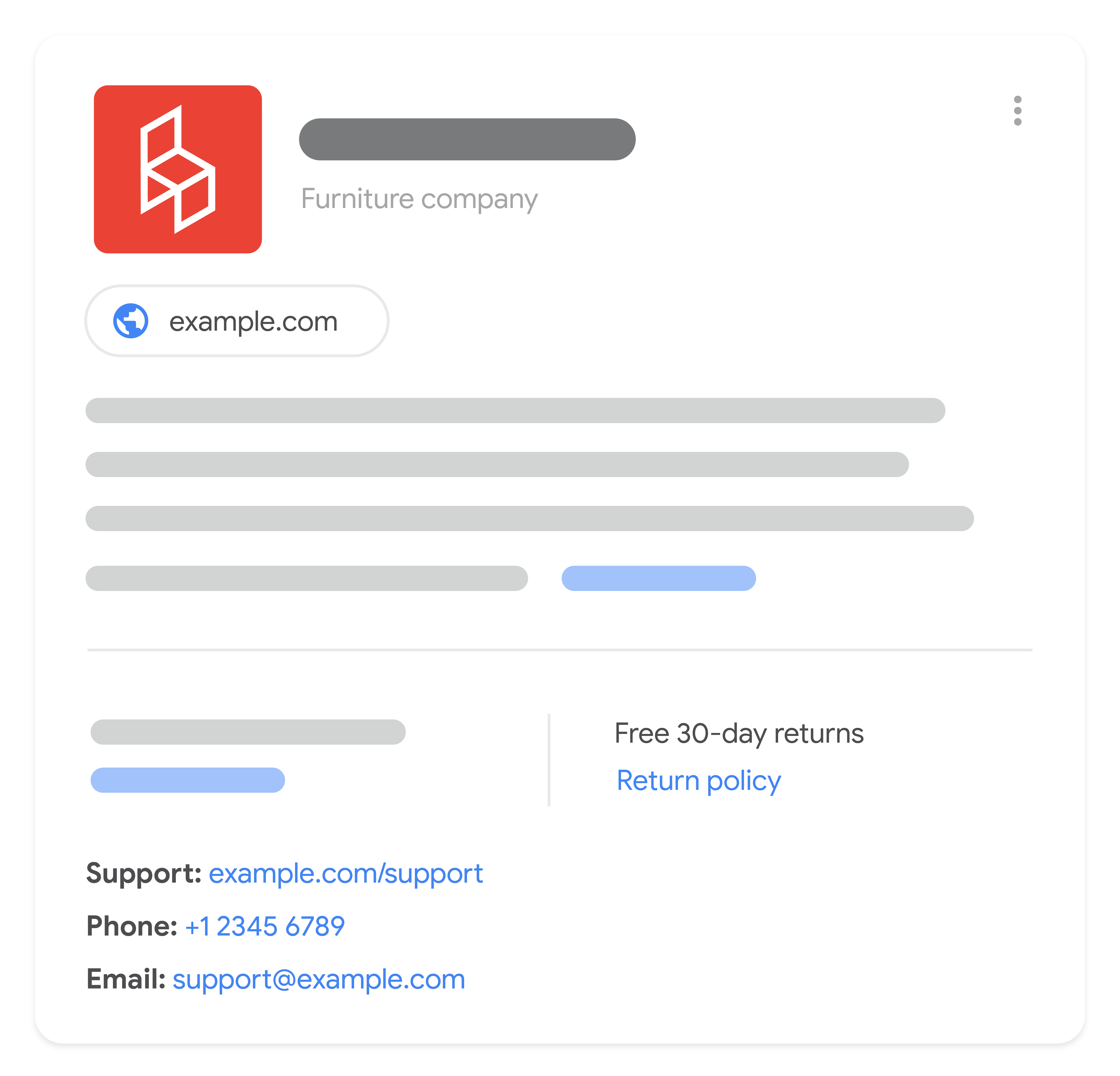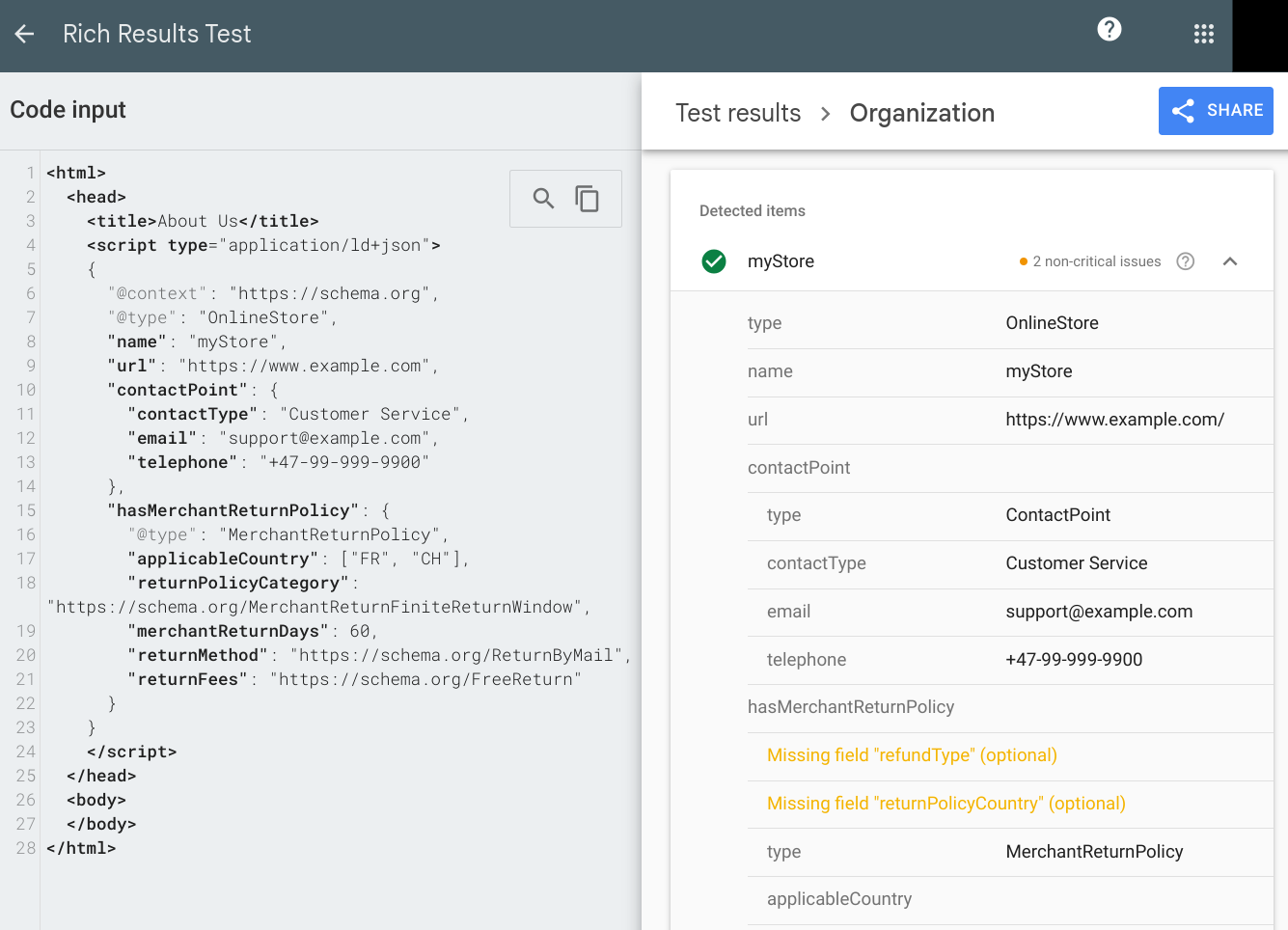Wtorek, 11 czerwca 2024 roku
Zasady zwrotów to główny czynnik brany pod uwagę przez kupujących przy zakupie produktów online, dlatego w zeszłym roku umożliwiliśmy wyodrębnienie zasad zwrotów opartych na uporządkowanych danych dla poszczególnych produktów. Dzisiaj dodajemy obsługę zasad zwrotów również na poziomie organizacji, co oznacza, że będziesz mógł określić ogólne zasady zwrotów dla swojej firmy, zamiast definiować je dla każdego pojedynczego produktu, który sprzedajesz.

Dodanie zasad zwrotów na poziomie organizacji może pomóc zmniejszyć rozmiar znaczników uporządkowanych danych dotyczących produktu i ułatwić zarządzanie znacznikami zasad zwrotów w jednym miejscu. Może też sprawić, że Twoje zasady zwrotów będą mogły być wyświetlane w dodatkowych wynikach wyszukiwania, takich jak panele wiedzy i profile marek, oprócz wyników wyszukiwania produktów.
Dodanie zasad zwrotów do uporządkowanych danych organizacji jest szczególnie ważne, jeśli nie masz konta Merchant Center i chcesz mieć możliwość określenia zasad zwrotów dla swojej firmy. Merchant Center umożliwia już określenie zasad zwrotów dla Twojej firmy, więc jeśli masz konto Merchant Center, zalecamy zdefiniowanie tam zasad zwrotów.
Dodanie obsługi zasad zwrotów do testu wyników z elementami rozszerzonymi
Możesz przetestować zasady zwrotów zdefiniowane w uporządkowanych danych Twojej organizacji, korzystając z testu wyników z elementami rozszerzonymi i przesyłając adres URL strony lub fragment kodu. Za pomocą tego narzędzia możesz od razu zweryfikować poprawność znaczników.

Jeśli Twoja witryna prowadzi działalność internetową lub lokalną, zalecamy użycie jednego z podtypów OnlineStore lub LocalBusiness typu Organization.
Mamy nadzieję, że ten dodatek ułatwi Ci dodanie zasad zwrotów dla Twojej firmy i umożliwi ich wyświetlanie w Zakupach Google. Jeśli masz jakieś pytania lub wątpliwości, skontaktuj się z nami za pośrednictwem społeczności Centrum wyszukiwarki Google, na Twitter lub LinkedIn.
